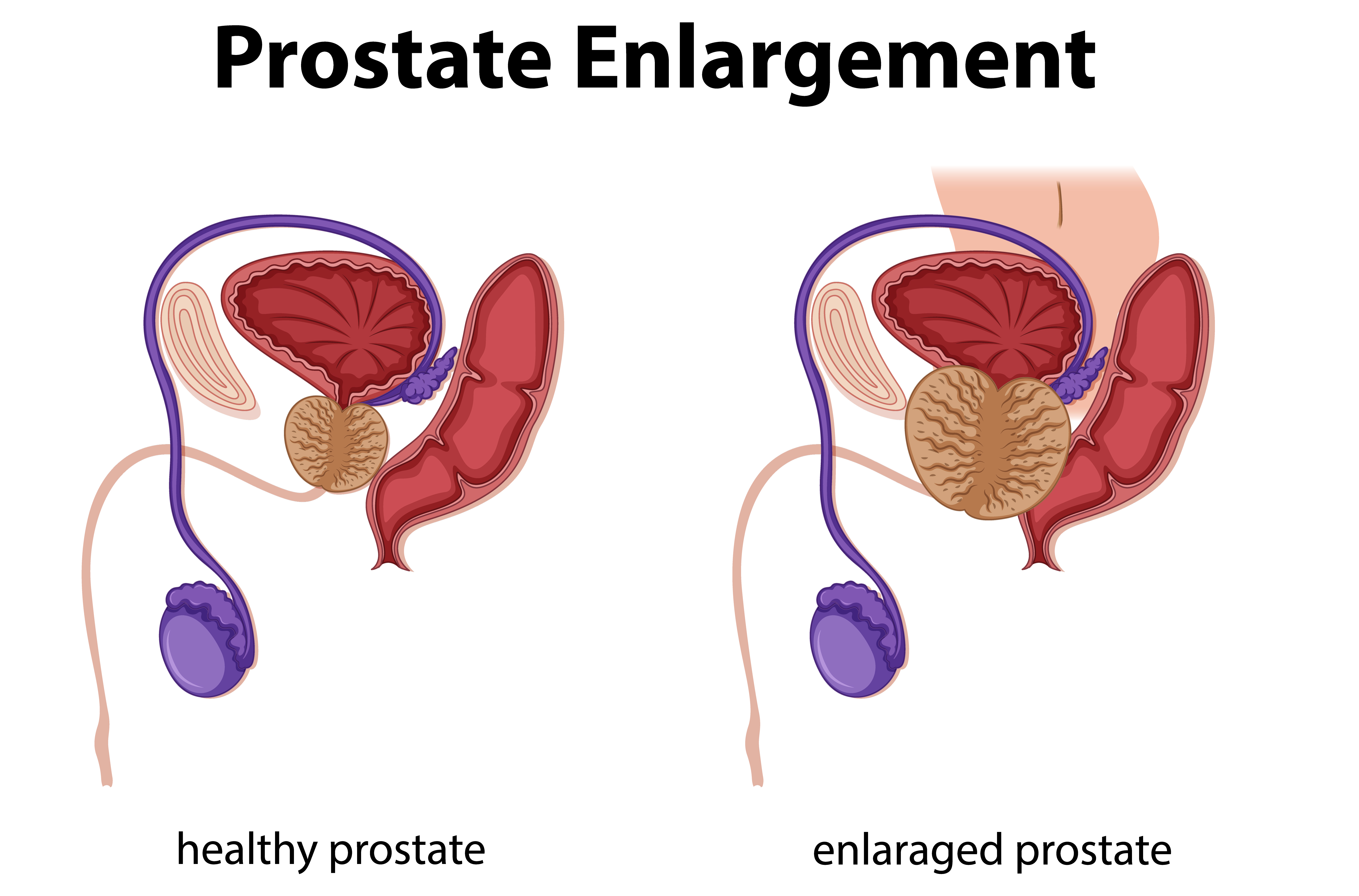Treatments Others BPH

Addressing BPH with Homeopathy: A Gentle Approach to Prostate Health
The prostate gland, a small walnut-shaped organ located below the bladder, plays a crucial role in the male reproductive system. Its main function is to produce seminal fluid, which nourishes and transports sperm. However, with age, hormonal changes can cause the prostate gland to grow, leading to BPH. Although the exact cause of BPH is not fully understood, hormonal imbalances, genetics, and age-related factors are believed to play a role.
As men age, various health concerns arise, and one condition that affects a significant number of them is Benign Prostatic Hyperplasia (BPH). BPH refers to the non-cancerous enlargement of the prostate gland, leading to a range of urinary symptoms. Homeopathy, with its holistic and individualized approach, offers a gentle and natural solution worth exploring. In this article, we will delve into how homeopathy can provide relief from BPH symptoms while supporting overall prostate health.
What is Benign Prostatic Hyperplasia?
The prostate gland, a small walnut-shaped organ located below the bladder, plays a crucial role in the male reproductive system. Its main function is to produce seminal fluid, which nourishes and transports sperm. However, with age, hormonal changes can cause the prostate gland to grow, leading to BPH. Although the exact cause of BPH is not fully understood, hormonal imbalances, genetics, and age-related factors are believed to play a role.
Recognizing the Symptoms
The symptoms of BPH can vary from person to person, but they generally revolve around urinary difficulties. Here are some common signs to watch out for:
Treatment Options
When it comes to managing BPH, several treatment options are available. The choice of treatment depends on the severity of symptoms, the impact on daily life, and the individual’s overall health. Here are some common approaches:
Homeopathy is a system of medicine founded on the principle of “like cures like” and seeks to stimulate the body’s innate healing abilities. Homeopathic remedies are derived from natural sources and are highly diluted to minimize toxicity while maximizing therapeutic effects. Rather than addressing symptoms in isolation, homeopathy aims to treat the person as a whole, taking into consideration physical, mental, and emotional aspects.
The Importance of Professional Guidance
While homeopathy offers a promising approach to managing BPH symptoms, it is crucial to consult Dr. Singh’s Homeopathy for individualized guidance. Every individual is unique, and the selection of remedies should be based on a comprehensive understanding of the individual’s overall health, symptoms, and constitutional characteristics.
Complementary Measures for Prostate Health
In addition to homeopathic remedies, adopting certain lifestyle modifications can provide further support for prostate health. These include:
Conclusion
Benign Prostatic Hyperplasia can be a source of discomfort and inconvenience for men, but it doesn’t have to dominate their lives. Homeopathy offers a gentle and holistic approach to managing BPH symptoms while supporting overall prostate health. By addressing the root cause and considering the individual as a whole, DR. SINGH’S HOMEOPATHY aims to restore balance and harmony within the body. If you or your known is suffering from BPH; feel free to Contact DR. SINGH’S HOMEOPATHY for personalized guidance and embark on a journey toward improved prostate health naturally.

